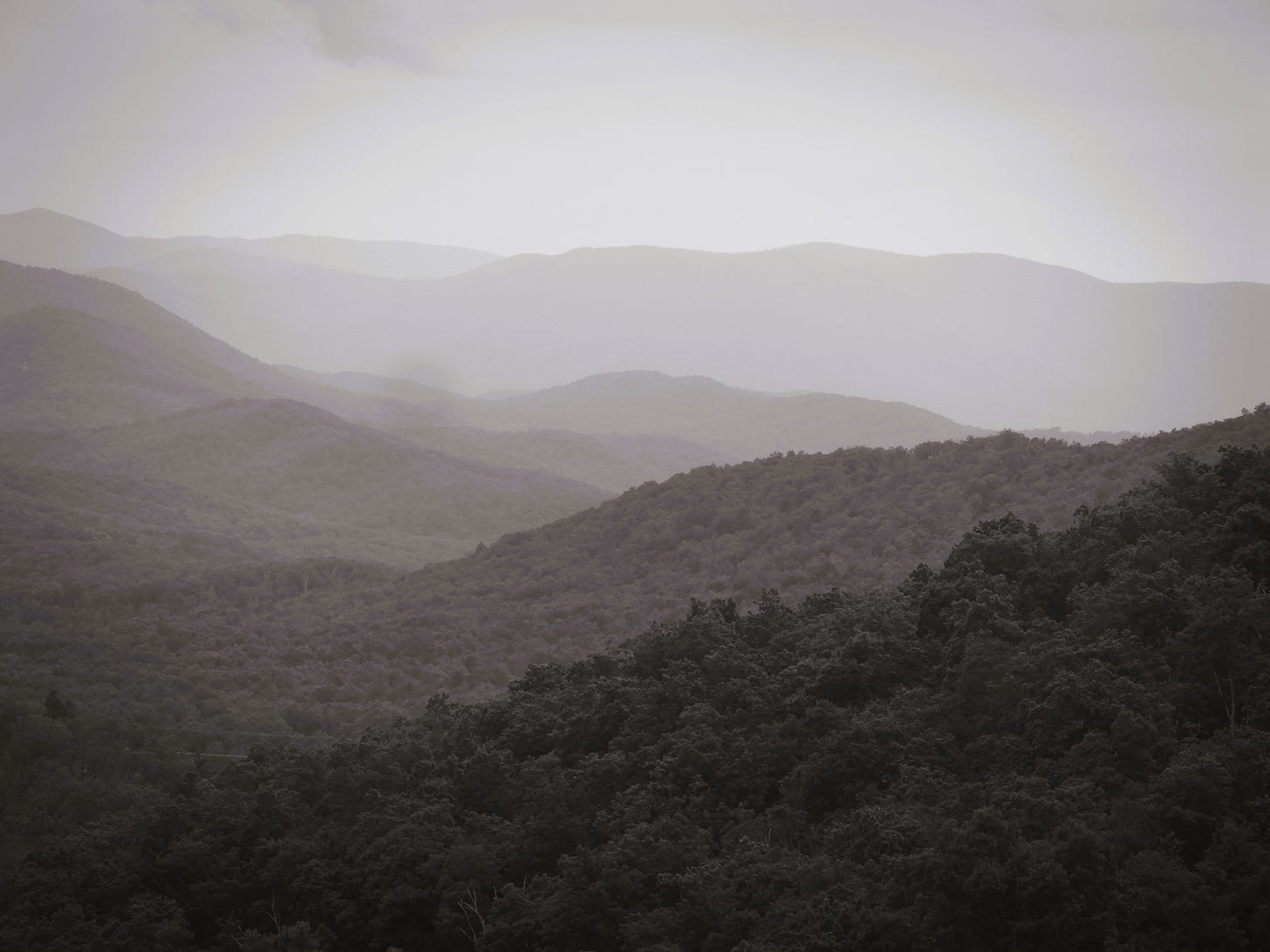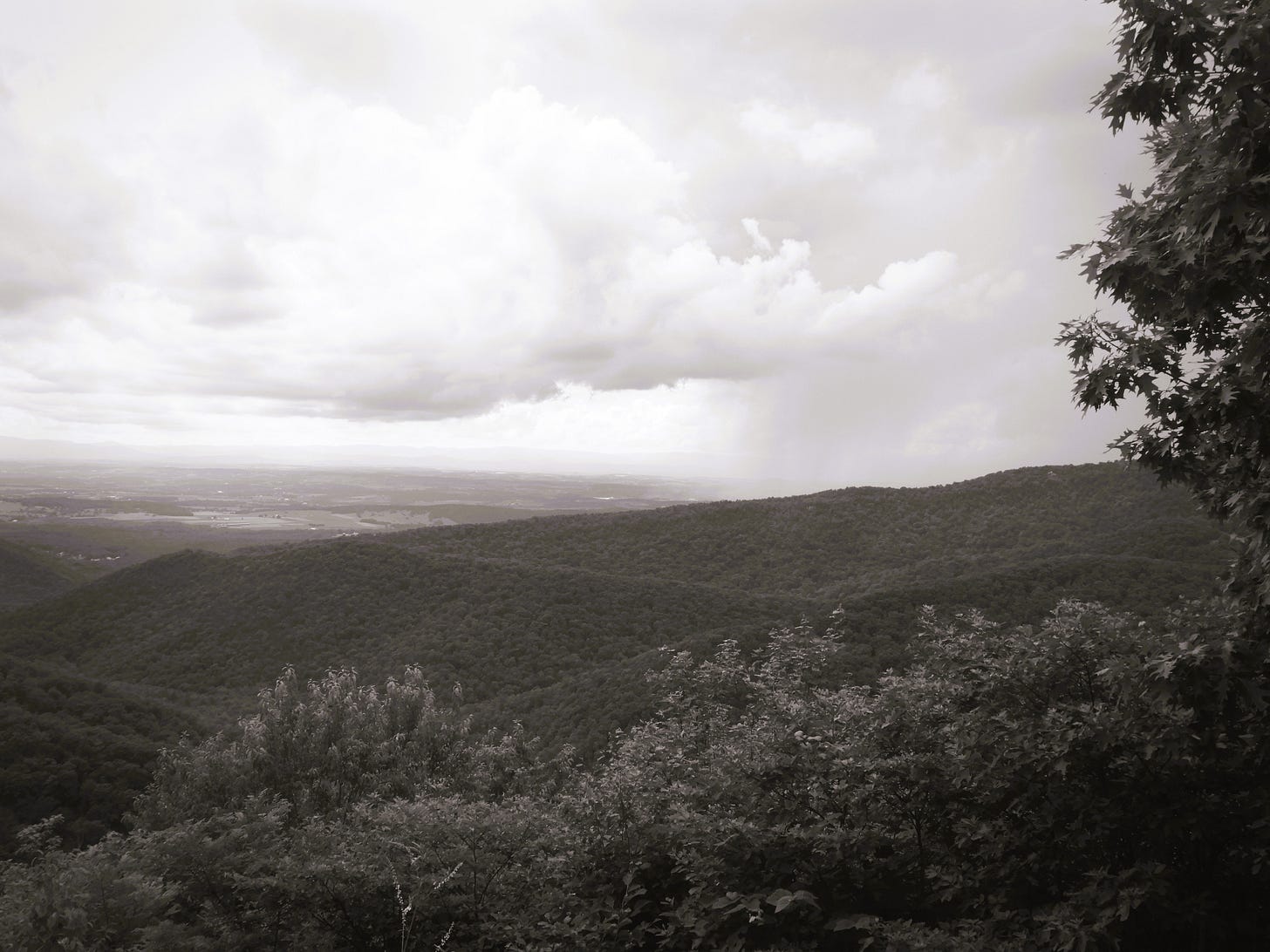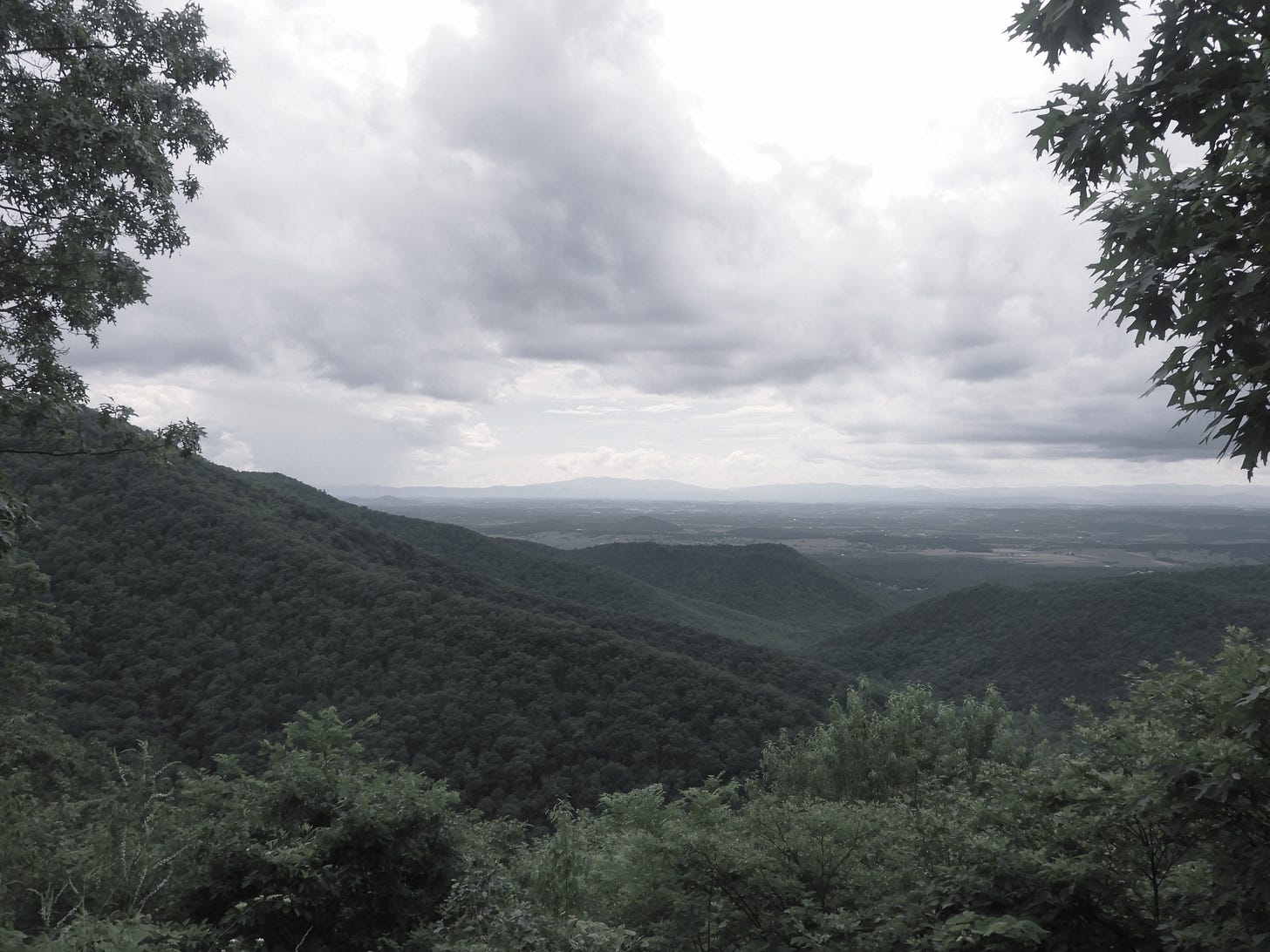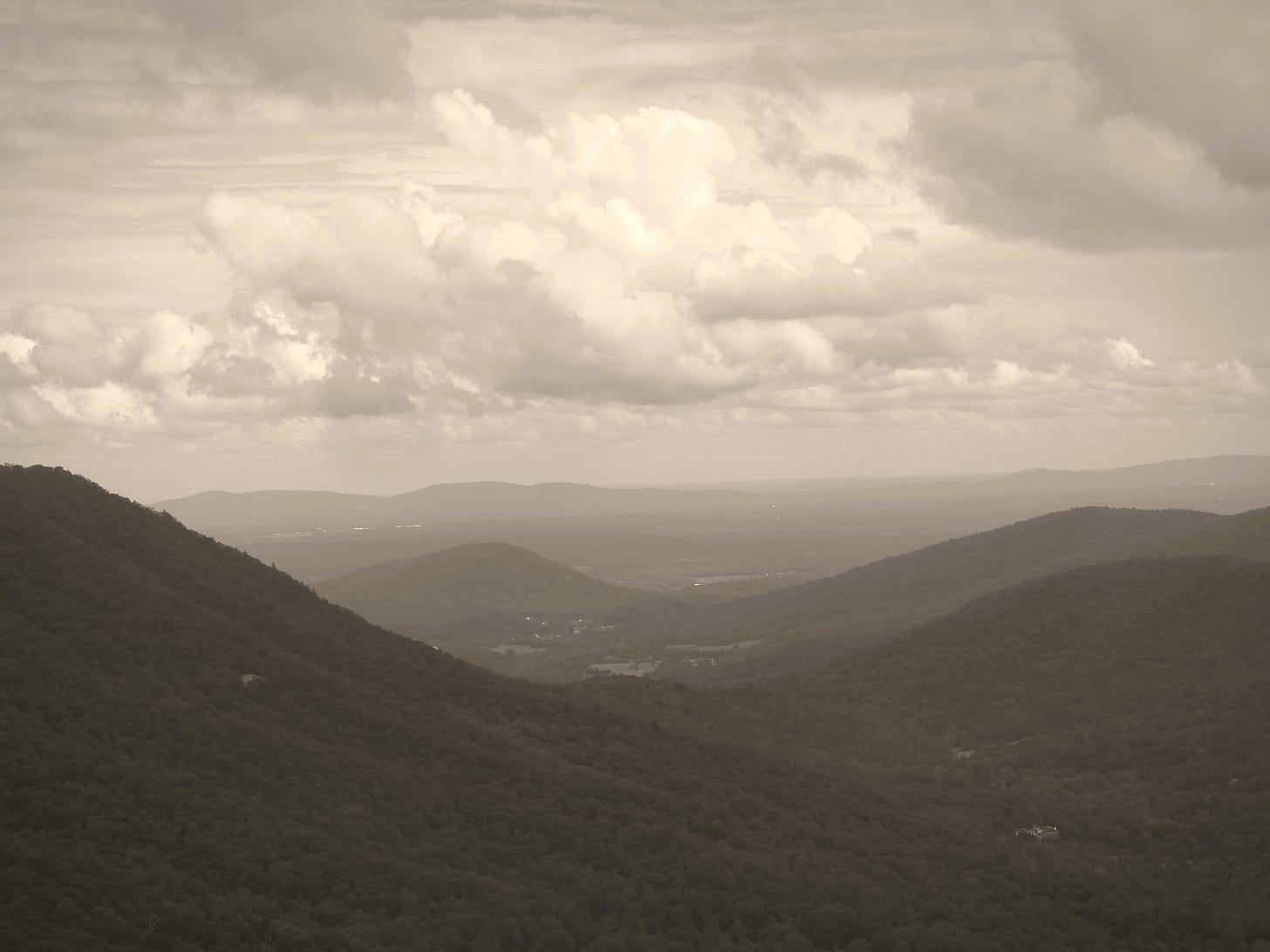Some of us face our lies. It is a difficult birth a long hike to the apex of a life where untruths become opaque, almost dissipate like that heavy cloud far across the valley. Watch the light come back after the passing of pillows of darkness empty over another West Virginia holler abandoned by the businesses that lent it life for a time, a few generations: shaved tops from mountains made slaves of immigrants and immigrants from those who belonged. The deep marks, scars still there, the old trails through the gaps, notches, past the old union halls covered in kudzu. Oh, I am on my way to Monticello the same day as the first military parade to tear up the avenues of the capital, overshadowed by millions with signs and songs, a history of justifiable “no”-- Oh, I am on my way to Monticello to tear out some truth in this moment, root out something like disease but not disease… a tattoo on the blood of the founders, a war cry against what their lapses would become.
* Tom! I have questions! Goddammit I have a dispute! Tell me! Explain this for me! I take the secondary roads old trails wound around the oldest mountains on the planet as if I am lacing up the wounds of this place. Stunning vistas, valleys of mists and blood. Not many came to your Little Mountain from the west as I have. * We wind our way through Elkins West Virginia, Highway 33, where a noisy joyful crowd dances in the sun with their placards with their history, the riches of their town dissolving. Hatfields. Matewan. Black lung. Hidden legacy of a brief union of races and nations. Hidden legacy of Jim Crow. Even kindness. This is a poem of opposites. This is a poem of arguments that may never be resolved.
* I have something to confess. I have visited Monticello at least a dozen times. When I was a boy the talk was of happy slaves. By the time I was in my forties, the change was palpable and final, the tourguide suddenly wise, listened when one tourist asked “But weren’t his slaves treated well?” and he let a moment of silence pass before he said "what part of being a slave would be considered being treated well?" Ghosts. The fact is (and this can hardly be contained in a poem but still) Jefferson’s overseer, a cruel and drunken Irishman escaping his own devils was mean and vindictive. Tom would turn away, silent, when told of the devilish brutalities the fellow unleashed. Face it. This is not something to be excused due to the alleged normalities of the time. Many others had let go of the idea and the behaviors involved in profitable ownership of another person. Many had written about its evil. Diderot, a Jefferson favorite, wrote brilliantly against the practice. But... Was it a practice? What do such alleged practices tell us about us? What do they tell us about their antecedents and subsequents? what about us? What?
* We have barely brushed the surface and now this return to the pit of bloody autocracy and the cloud of felonious mass mendacity we have barely reached out from, nearly grasped, into the sun * (I have yet to enter Martha Jefferson’s room without having to suppress choking sobs. This makes no sense to me. It is so bizarrely automatic, beyond soporific... but still it is true.) * Now we risk the destruction of all possibility of a kingless state. No matter how many signs we flash in the sun that demand No More Kings. Our trip, planned months before the plans congealed for the widespread protest across the country against the emerging kingship (oh absurd orange creature unable to feel your own existence without the constant appellation of shallow adoration or even hate that sates your need to feel and feed the boundaries of selfhood, that lack of identity, that emptiness of soul that putrescence...) * How ask the owners of slaves these questions? I confront you with your shadows I confound you with your shadows Founders! Fathers of your errant nation! Dissembling into the anarchy of narcissistic self-destruction oh slaves in the caves of the mines and wild west shows slaves slaves escaped in the swamps hounded by dogs slaves divested of homeland by the violence of material covetousness the advantage of a worship of Baal of money equals speech by the life organs and jewels of the earth taken for free—nothing left behind but rot and poisoned water, nothing printed across the faces of the guilty but absurd reconstructed masks hiding some irreversible ineffable undeniable rot and age.
* The imperfections of the race are printed over landscapes that still manage inspiration. I could worship trees all these explosions of azaleas and bloodroot the distances blotted out by a passing storm the notches that swell and flood and shrink back again how we remember freedom carved out of every unending human toil how we remember freedom some spooky dream from some nearly forgotten ancestral dream dream of migration immigration dream—the human birthrite to find the place where our children can flourish. How can it be other? We remember these travels, repeat them these pilgrimages to places where the fault lines of the gods groan * From the dogleg switchbacks to the little store where we meet the kindest people where everything reminds us of why we are brilliant and why we are simultaneous bundles of shames and gross hypocrisy. And yet the world can still embrace us here, winding through the ancients these rounded mountains folding in and back on themselves, west is east and east becomes west oh I am on my way to Monticello to see the flawed master to see his garden and to smell his grief and his misbegotten and wonderful dreams * Free. Freedom Equal All Except the king Except the preposterous kingship Hold your placards high all you citizens of Elkins, hold your placards high.









